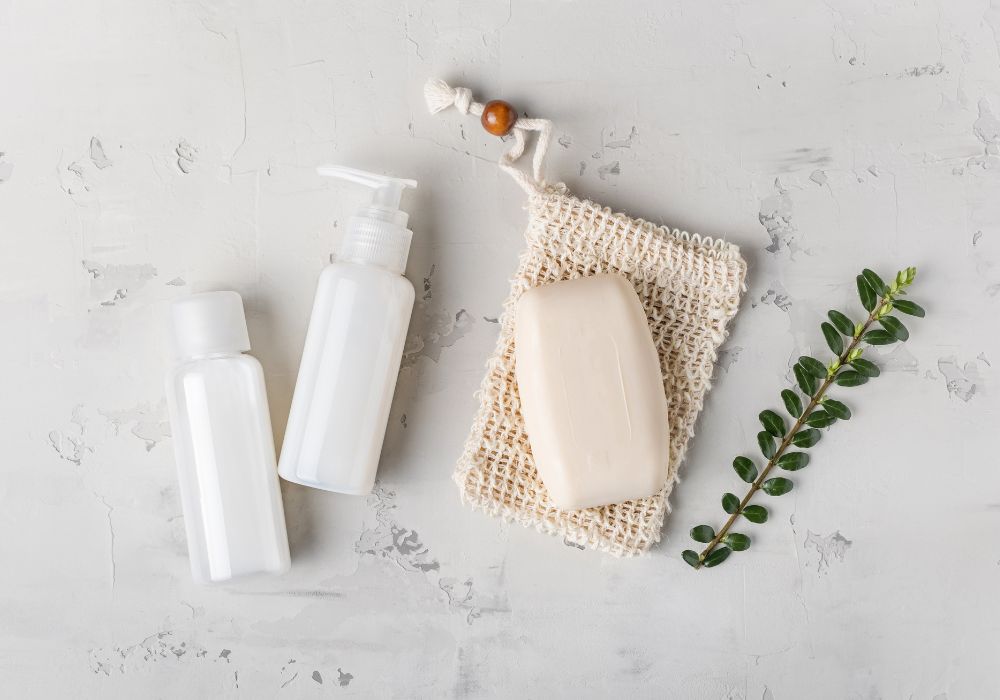In recent years, the beauty industry has seen a significant shift towards sustainability. Consumers are becoming more conscious of their environmental impact and are seeking out beauty products that are not only effective but also eco-friendly. This article delves into sustainable beauty practices, providing tips on how to reduce waste and environmental impact while maintaining a stellar beauty routine.
The Importance of Sustainable Beauty
Environmental Concerns
The beauty industry is notorious for its environmental footprint. From plastic packaging to chemical waste, the impact is significant. Brianne West, founder of Ethique, emphasizes, “We need to rethink the way we consume beauty products. It’s not just about using natural ingredients; it’s about reducing waste and making choices that are better for the planet” (Source: Ethique).
Social Responsibility
Sustainable beauty also encompasses social justice. Dominique Drakeford, founder of Sustainable Baddie, states, “Sustainability is not just about the environment; it’s about social justice too. Look for brands that are committed to fair labor practices and supporting marginalized communities” (Source: Sustainable Baddie).
Personal Anecdote
I remember the first time I decided to make a conscious effort to switch to sustainable beauty products. It was overwhelming at first, but I started small by replacing my single-use cotton pads with reusable ones. Over time, these small changes added up, and I felt a sense of accomplishment knowing I was doing my part for the planet.
Key Areas of Focus for Sustainable Beauty
Reducing Packaging Waste
Minimalist Packaging
One of the most significant sources of waste in the beauty industry is packaging. Opting for products with minimal packaging can make a huge difference. Lauren Singer, founder of Package Free Shop, advocates for zero waste beauty, stating, “Zero waste beauty is possible. It’s about choosing products with minimal packaging, refillable options, and using reusable alternatives like cotton rounds and bamboo toothbrushes” (Source: Package Free Shop).
Refillable Products
Brands like Lush and Kjaer Weis offer refillable options, reducing the need for single-use packaging. These products are designed to be reused, cutting down on waste.
Ethical Sourcing
Fair Labor Practices
Supporting brands that prioritize fair labor practices is crucial. Look for certifications like Fair Trade, which ensure that workers are paid fairly and work in safe conditions.
Sustainable Ingredients
Choose products made from sustainably sourced ingredients. Mia Davis, VP of Sustainability & Impact at Credo Beauty, notes, “Sustainable beauty is a journey, not a destination. It’s about making small changes that add up over time. Every little bit helps” (Source: Credo Beauty).
Practical Tips for Sustainable Beauty
Choose Multi-Use Products
Using products that serve multiple purposes can reduce the number of items you need, thereby cutting down on waste. For example, a tinted moisturizer that also acts as a sunscreen and a foundation is a great way to minimize your beauty arsenal.
DIY Beauty Recipes
Creating your own beauty products at home can be both fun and eco-friendly. Simple ingredients like coconut oil, honey, and oatmeal can be used to make face masks, scrubs, and moisturizers.
Personal Anecdote
One of my favorite DIY beauty recipes is a simple honey and oatmeal face mask. It’s incredibly easy to make, leaves my skin feeling soft and hydrated, and best of all, it reduces the need for store-bought masks that often come in single-use packaging.
Support Sustainable Brands
Supporting brands that are committed to sustainability can drive change in the industry. Aja Barber, fashion writer and consultant, emphasizes, “Sustainable beauty is an intersectional issue. We need to consider the impact of our beauty choices on the environment, on animals, and on people” (Source: Aja Barber).
Recycle and Upcycle
Properly recycling beauty product containers can significantly reduce waste. Some brands, like MAC and Lush, even offer recycling programs where you can return empty containers for recycling and receive a discount on future purchases.
Upcycling Ideas
- Makeup Brush Holders: Use empty candle jars or small containers to hold makeup brushes.
- DIY Planters: Turn empty skincare containers into small planters for succulents or herbs.
The Future of Sustainable Beauty
Innovations in Packaging
The beauty industry is continually evolving, with new innovations in sustainable packaging. Biodegradable materials and refillable containers are becoming more common, making it easier for consumers to make eco-friendly choices.
Increased Transparency
Consumers are demanding more transparency from beauty brands regarding their sustainability practices. This push for accountability is driving brands to adopt more sustainable practices and be more transparent about their ingredient sourcing and labor practices.
Personal Anecdote
As someone who has always loved trying new beauty products, switching to sustainable options initially felt like a limitation. However, I quickly realized that the sustainable beauty market is filled with innovative, high-quality products that often outperform their conventional counterparts. This journey has not only been beneficial for the environment but also incredibly rewarding for my personal well-being.
Conclusion
Sustainable beauty is not just a trend; it’s a necessary shift towards a more responsible and ethical industry. By making small changes, such as choosing products with minimal packaging, supporting ethical brands, and incorporating DIY beauty recipes, we can all contribute to reducing waste and environmental impact.
As Brianne West aptly puts it, “We need to rethink the way we consume beauty products. It’s not just about using natural ingredients; it’s about reducing waste and making choices that are better for the planet” (Source: Ethique). Embrace sustainable beauty practices and be part of the movement towards a more eco-friendly and socially responsible world.
Sources:
- Brianne West, Founder of Ethique (Source: Ethique)
- Mia Davis, VP of Sustainability & Impact at Credo Beauty (Source: Credo Beauty)
- Lauren Singer, Founder of Package Free Shop (Source: Package Free Shop)
- Dominique Drakeford, Founder of Sustainable Baddie (Source: Sustainable Baddie)
- Aja Barber, Fashion Writer and Consultant (Source: Aja Barber)
- The Environmental Impact of the Cosmetic Industry (Journal of Cleaner Production)
- Consumer Perceptions of Sustainable Beauty Products (Journal of Consumer Marketing)
By incorporating these practices into our routines, we can make a significant impact. Let’s embrace the journey towards sustainable beauty together.

